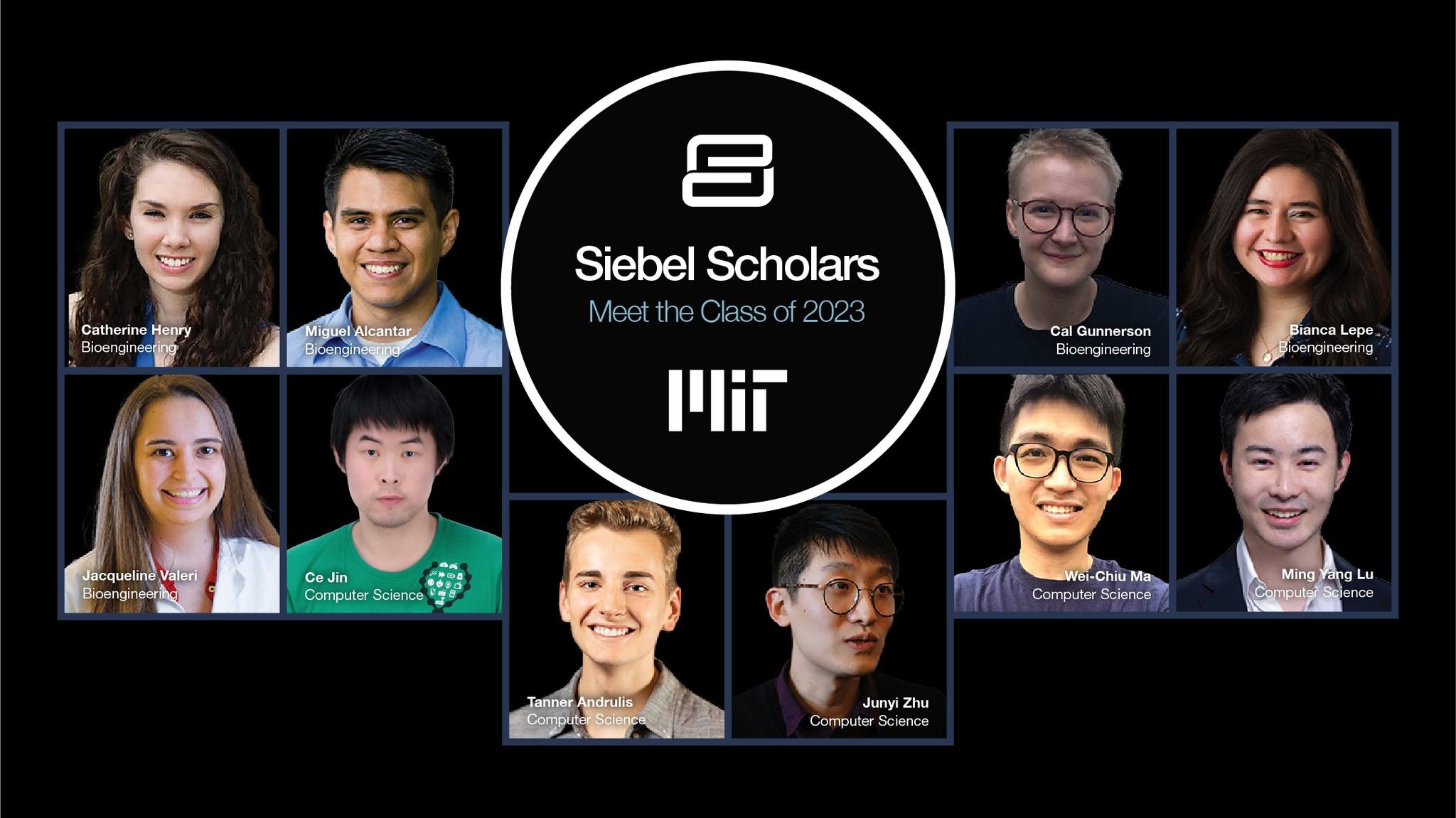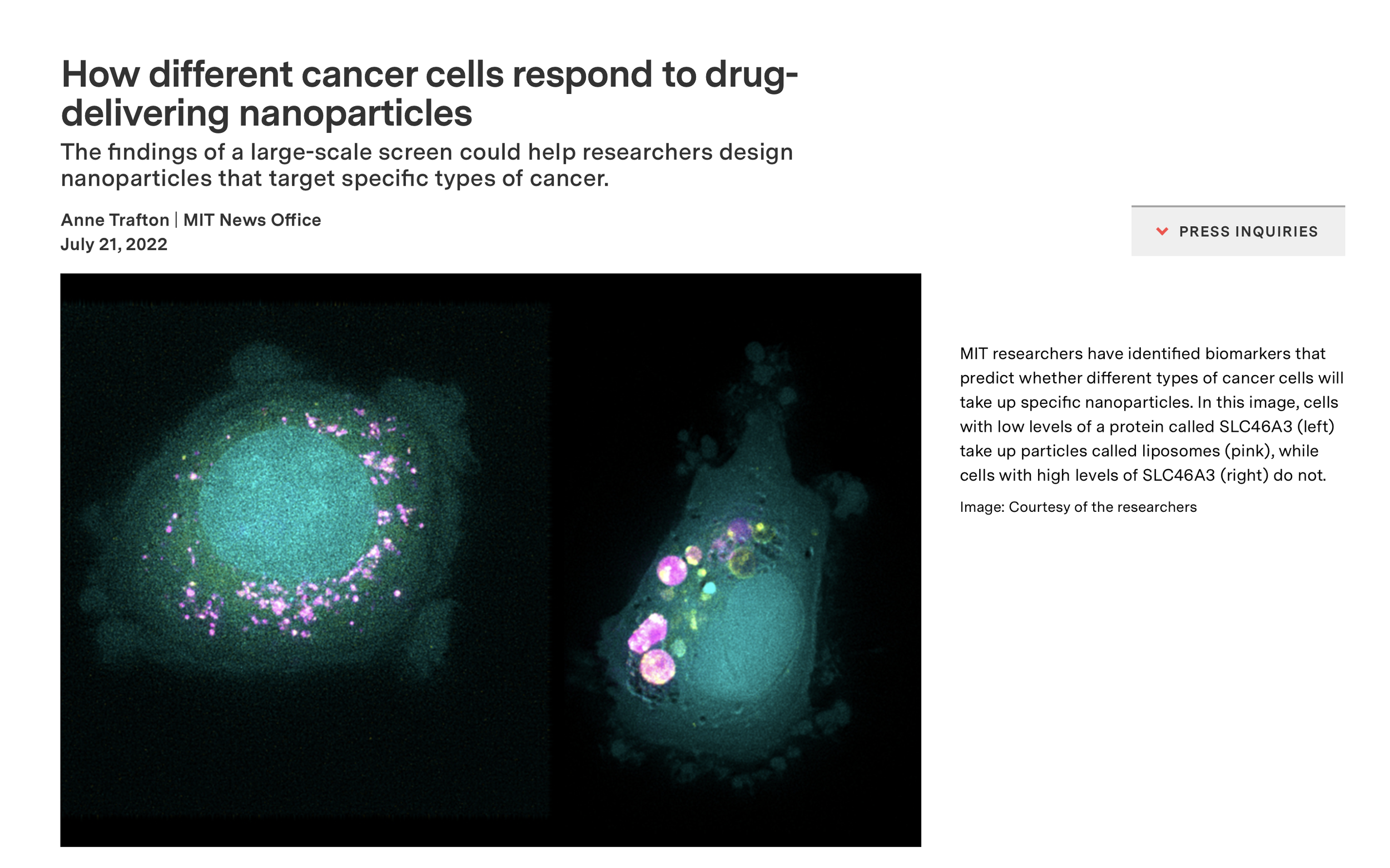Honored to be a part of this group
/https://news.mit.edu/2022/tenured-engineers-1024
https://news.mit.edu/2022/tenured-engineers-1024

The Siebel Scholars Foundation announced the recipients of the 2023 Siebel Scholars award. Our very own Catherine Henry is a worthy recipient!
Now in its 22nd year, the Siebel Scholars program annually recognizes nearly 100 exceptional students commitment to academics and influencing future society. http://ow.ly/jC2f50KQAmM
Congratulations to Catherine and her talented scholar cohort!

The lab celebrated the end of Huarui’s tenure at MIT with a late summer lunch at Shy Bird in Kendall Square (not a cloud in the sky). She’ll be joining Maddy Henley at Foghorn Therapeutics, just down the road, to fight the good fight against diseases with aberrant chromatin regulation. Good luck!

Our collaborative work with the Hammond Lab and the Broad Institute around NanoPRISM was recently published in Science and covered in MIT News:
https://news.mit.edu/2022/how-different-cancer-cells-respond-drug-delivering-nanoparticles-0721

It is with great pleasure to announce that Leyna Duong is a recipient of the 2022 Department of Chemistry Research Award for outstanding achievement in undergraduate research. We know you’ll tackle grad school with ease!
The lab is very proud to announce the successful defense of Rob Wilson, the master of RNA binding proteins. Rob made strong contributions to our strategies to perturb MYC-driven transcription, including work focused on altering MYC transcripts using a variety of strategies (e.g. targeting MAX, LIN28B). He also pioneered a strategy to survey the target tractability of RNA-binding domains, generating new chemical matter for modulating previously intractable targets and staring down and understudied set of targets. Rob is scholar of high standards and his thoughtful criticism will be missed when he heads off to the real world.

Morgan Stilgenbauer is the recipient of a 2022 Koch Institute Postdoctoral Fellowship, supported by the Ludwig Center at MIT. The fellowship supports her research into novel strategies to modulate the stability of oncogenic transcription factors by directly targeting proteins that regulate stability, such as chaperones or E# ligases, with lead-like or low molecular weight small molecules. Congrats from the team!
The Marble Center for Cancer Nanomedicine and the MIT Center for Precision Cancer Medicine are pleased to announce the 2021-2022 class of Convergence Scholars. The Convergence Scholars Program (CSP) fosters the development of a new type of scientist—one who understands a broad range of disciplinary approaches, is able to ask creative questions, and is trained to answer those questions with diverse tools. By preparing postdocs for life beyond the bench, the CSP helps young scientists hone the skills they need to succeed within and beyond the academic setting. Read more at the Ki website.
The Koehler Lab aims to innovate in the earliest stages of drug discovery by building chemical tools or technologies to assist in the process of target validation and by expanding the repertoire of protein targets that are considered to be druggable. We focus primarily on building chemical tools and methods for studying temporal aspects of transcriptional regulation in development and disease with a focus on cancer.
The Koehler Lab is supported through the generosity of our public and private funding partners.
We will gladly accommodate requests for greater accessibility of public content.